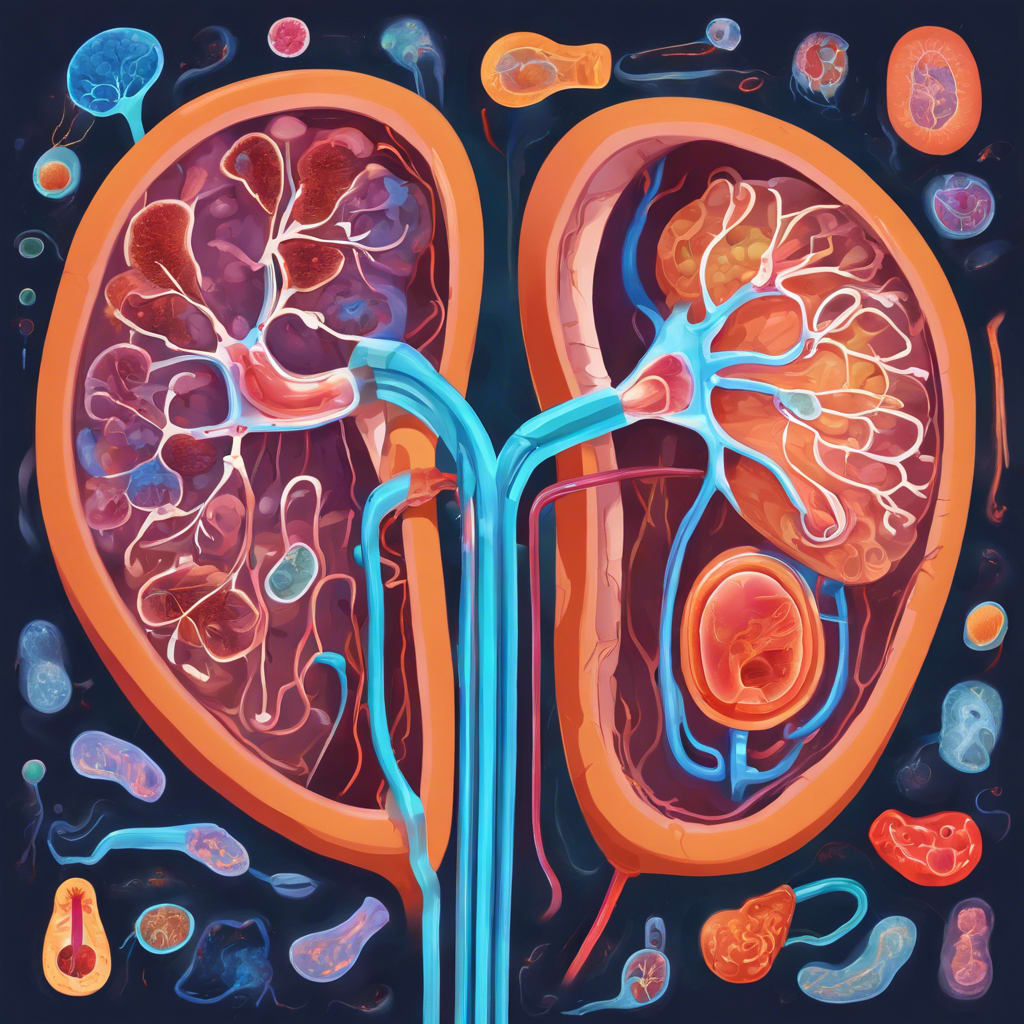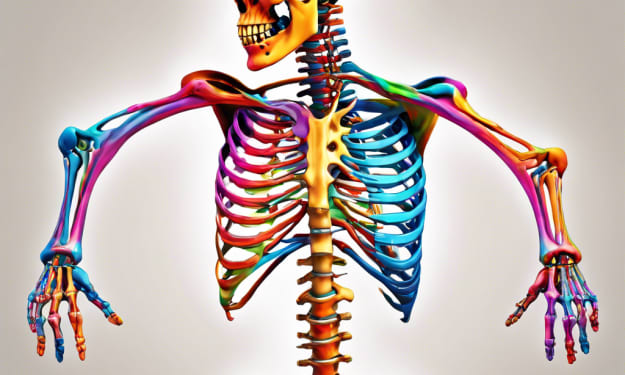The Silent Guardians: Unveiling the Power of Your Kidneys
Beyond Waste Removal: How These Vital Organs Maintain Your Body's Balance

The Silent Guardians: Unveiling the Power of Your Kidneys
Our bodies are marvels of intricate systems, working in perfect harmony to sustain life. While some organs, like the heart or lungs, garner more attention, others operate silently but no less critically. The kidneys, two unassuming bean-shaped organs nestled near your lower back, play a crucial role in maintaining our internal equilibrium – a state known as homeostasis. Understanding how these silent guardians function empowers us to adopt habits that promote their health and overall well-being.
Filtration Champions: The Microscopic Powerhouse of the Nephron
Imagine millions of tiny factories within your kidneys, each meticulously filtering and purifying your blood. These factories are called nephrons, and they are the functional units that orchestrate the complex magic of kidney function. Each day, approximately 130 quarts of blood course through your kidneys, and these microscopic marvels filter out waste products, excess water, and unwanted salts, while meticulously retaining essential blood cells and proteins.
The Glomerulus: Precision Filtration at the Core
The first stage of this filtration process occurs within a structure called the glomerulus. Think of it as a highly selective sieve. Blood pressure pushes fluid, electrolytes, and smaller molecules through the glomerulus, while larger elements like blood cells and proteins remain in the bloodstream. This initial filtration separates the essential from the unwanted.
The Tubule: A Stage for Reabsorption and Fine-Tuning
The filtered fluid then flows into the tubule, a winding passage within the nephron. Here, a fascinating dance of reabsorption and excretion takes place. Specialized cells lining the tubule meticulously reclaim vital components like water, sugars, and salts, returning them to the bloodstream. Conversely, waste products and excess water are directed towards the ureters, eventually becoming urine.
Maintaining Balance: The Kidneys and Homeostasis
The kidneys work tirelessly to maintain a delicate balance of fluids and electrolytes within the body. This balance is crucial for optimal health, impacting everything from blood pressure to muscle function. By regulating water content in the blood, the kidneys play a key role in blood pressure control. Similarly, by managing electrolyte levels, they ensure proper nerve and muscle function.
Threats to the Silent Guardians: Chronic Kidney Disease
Several factors can compromise kidney health, leading to chronic kidney disease (CKD). High blood pressure and diabetes are significant risk factors, as they can damage the delicate filtration systems within the nephrons. Maintaining healthy blood pressure and managing diabetes are crucial steps in safeguarding kidney health.
Beyond Risk Factors: Lifestyle Choices for Healthy Kidneys
Fortunately, we can significantly influence the health of our kidneys through our lifestyle choices. Here are some practical tips to promote optimal kidney function:
- Embrace a Balanced Diet: A healthy diet low in processed foods, added sugars, and sodium supports kidney health. Focus on fruits, vegetables, and whole grains, which provide essential nutrients without overloading the kidneys.
- Stay Hydrated: Adequate water intake is vital for proper kidney function. Aim for eight glasses of water daily, adjusting based on your activity level and climate.
- Exercise Regularly: Regular physical activity promotes overall health and can benefit kidney function. Aim for at least 150 minutes of moderate-intensity exercise or 75 minutes of vigorous exercise per week.
- Maintain a Healthy Weight: Excess weight can put additional strain on the kidneys. Losing weight, even a modest amount, can improve kidney function.
- Limit Alcohol and Tobacco: Both alcohol and tobacco consumption can harm the kidneys. Moderating alcohol intake and quitting smoking are essential steps for kidney health.
- Manage Existing Conditions: High blood pressure and diabetes require careful management to minimize their impact on kidney health. Work closely with your doctor to ensure these conditions are well-controlled.
Guarding the Future: Advancements in Kidney Care
While chronic kidney disease can be a serious concern, advancements in healthcare offer hope and optimism for managing and treating kidney problems. Here's a glimpse into some exciting developments:
- Early Detection: Regular checkups, including blood tests and urine tests, are crucial for early detection of kidney problems. Monitoring glomerular filtration rate (GFR), a measure of kidney function, can help identify potential issues early when intervention is most effective.
- Transplantation: A Gift of Life: For patients with severe kidney failure, kidney transplantation offers a life-saving option. Transplantation involves replacing a diseased kidney with a healthy one from a deceased or living donor. Advances in surgical techniques and immunosuppressive medications have improved transplant success rates, offering patients a renewed chance at a healthy life. Organ donation remains critically important to ensure enough kidneys are available for those in need.
- Dialysis: Innovation and Hope: Dialysis, a lifesaving treatment that removes waste products and excess fluid from the blood when kidneys can no longer function effectively, has also seen significant advancements. While traditional hemodialysis involves connecting to a machine in a healthcare facility several times a week, newer options are emerging. Peritoneal dialysis allows patients to perform dialysis at home, offering greater flexibility and independence. Additionally, research into artificial kidneys, implantable devices that could mimic the function of natural kidneys, holds immense promise for the future.
By staying informed about these advancements and working with healthcare professionals, individuals with kidney problems can take an active role in managing their health and maintain a positive outlook for the future.
About the Creator
suren arju
Hi there! I'm Suren, your startup guide. Entrepreneur, writer, dreamer - I share insights, tips & stories to fuel your startup journey. Ready to explore, learn & win together? Join me & let's redefine how we launch, learn & leap!
Enjoyed the story? Support the Creator.
Subscribe for free to receive all their stories in your feed. You could also pledge your support or give them a one-off tip, letting them know you appreciate their work.





Comments (1)
Great article function of the kidney is very important!